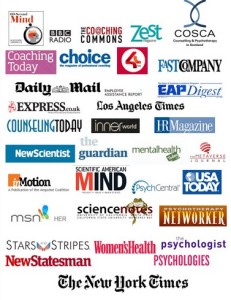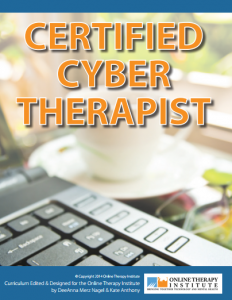We are proud to announce (somewhat belated) the publication of our new book,
The Use of Technology in Mental Health: Applications, Ethics and Practice
Kate Anthony, DeeAnna Merz Nagel and Stephen Goss, Editors
The book is available through Amazon and other major publishers.
About the book:
 Technology is revolutionizing the delivery of mental health services. In this book, the reader is introduced to the broadest possible sampling of technologies used by mental health professionals today. It contains 30 chapters on different aspects of technological innovation in mental health care from 43 expert contributors from all over the globe, appropriate for a subject that holds such promise for a worldwide clientele and that applies to professionals in every country.
Technology is revolutionizing the delivery of mental health services. In this book, the reader is introduced to the broadest possible sampling of technologies used by mental health professionals today. It contains 30 chapters on different aspects of technological innovation in mental health care from 43 expert contributors from all over the globe, appropriate for a subject that holds such promise for a worldwide clientele and that applies to professionals in every country.
A wide range of styles is offered, from the individual practitioner exploring a new technology and writing anecdotally about their personal experience, to some of the world’s most experienced practitioners writing a thorough overview of a technology and its uses in the profession.
In each chapter, you will find introductions to the technology and discussion of its application to the therapeutic intervention being discussed, in each case brought to life through vivid case material that shows its use in practice. Each chapter also contains an examination of the ethical implications – and cautions – of the possibilities these technologies offer, now and in the future. Technological terms are explained in each chapter for those not already familiar with the field, while the content should stimulate even the most seasoned and technologically minded practitioner.
Psychotherapists, counsellors, psychiatrists, life coaches, social workers, nurses – in fact, every professional in the field of mental health care can make use of the exciting opportunities technology presents. Whether you have been a therapist for a long time, are a student or are simply new to the field, The Use of Technology in Mental Health will be an important tool for better understanding the psychological struggles of your clients and the impact that technology will have on your practice.
Further information on ethics, training and practical exploration of online therapy can be found at www.onlinetherapyinstitute.com, whose work extends and deepens the resources made available in this volume.
TABLE OF CONTENTS
Foreword by Audrey Jung
Introduction
Chapter 1. Using Email to Conduct a Therapeutic Relationship—Patricia Ryan Recupero & Samara Harms,
Chapter 2. Using Chat and Instant Messaging (IM) to Conduct a Therapeutic Relationship Kathleene Derrig-Palumbo
Chapter 3. Using Cell/Mobile Phone SMS for Therapeutic Intervention—Thomas A. Merz
Chapter 4. Using Social Networks and Implications for the Mental Health Profession—Allison Thompson
Chapter 5. Using Forums to Enhance Client Peer Support—Azy Barak
Chapter 6. Using Cell/Mobile Phone SMS to Enhance Client Crisis and Peer Support Stephen Goss & Joe Ferns
Chapter 7. Using Websites, Blogs and Wikis in Mental Health—John M. Grohol
Chapter 8. The Role of Blogging in Mental Health—DeeAnna Merz Nagel & Gregory Palumbo
Chapter 9. Using the Telephone for Conducting a Therapeutic Relationship—Denise E. Saunders
Chapter 10. Using Videoconferencing for Conducting a Therapeutic RelationshipSusan Simpson & Emma Morrow
Chapter 11. Using Virtual Reality to Conduct a Therapeutic Relationship—John Wilson
Chapter 12. Using Virtual Reality Immersion Therapeutically—Guiseppe Riva
Chapter 13. The Use of Computer-Aided Cognitive Behavioural Therapy (CCBT) in Therapeutic Settings—Kate Cavanagh
Chapter 14. The Role of Gaming in Mental Health—Mark Matthews & David Coyle
Chapter 15. Web-based Clinical Assessment Reid Klion
Chapter 16. The Role of Behavioral Telehealth in Mental Health—Thomas J. Kim
Chapter 17. The Use of Virtual Reality for Peer Support—Leon Tan
Chapter 18. The Use of Podcasting in Mental Health—Marcos A. Quinones
Chapter 19. The Use of Online Psychological Testing for Self-Help—Mark Dombeck
Chapter 20. Using Email to Enrich Counselor Training and Supervision—John Yaphe & Cedric Speyer
Chapter 21. Using Chat and Instant Messaging (IM) to Enrich Counselor Training and Supervision—DeeAnna Merz Nagel & Sara Riley
Chapter 22. Using Forums to Enrich Counselor Training and Supervision—Linnea Carlson-Sabelli
Chapter 23. Text-Based Credentialing in Mental Health—Daniel M. Paredes
Chapter 24. Online Research Methods for Mental Health—Tristram Hooley, Jane Wellens, Clare Madge & Stephen Goss
Chapter 25. Evaluating the Role of CCBT in Mental Health—Eva Kaltenthaler, Kate Cavanagh & Paul McCrone
Chapter 26. Traditional Uses of Technology IN COUNSELING TRAINEE SUPERVISION—Ginger Clark
Chapter 27. The Use of Telephone to Enrich Counselor Training and Supervision Melissa Groman
Chapter 28. The Use of Videoconferencing to Enrich Counselor Training and Supervision Diane H. Coursol, Jacqueline Lewis & John W. Seymour
Chapter 29. Online Training for Online Mental Health—Nicole Gehl, Kate Anthony & DeeAnna Merz Nagel
Chapter 30. The Role of Film and Media in Mental Health—Jean-Anne Sutherland
Conclusions—Kate Anthony & DeeAnna Merz Nagel
Index
Sneak Preview
Read a review from PsychCentral!
……………..
…………………


